
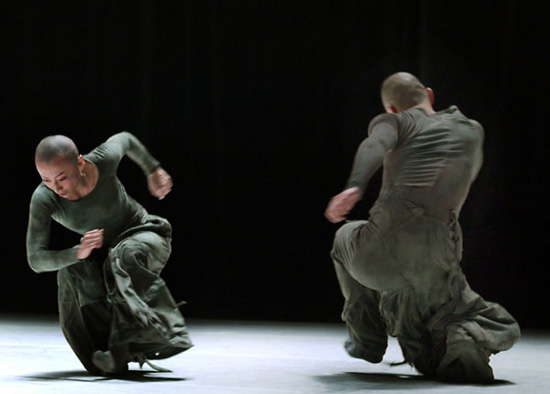 |
| Tao Dance is one of China's most-successful private art troupes. (China Daily/Lars Ake-Stomfelt) |
'Soft power'
China's rocketing economic growth has energized its "soft power", which, according to Joseph S. Nye, a professor of political science at the Harvard Kennedy School, "is the ability to get what you want through attraction rather than coercion or payment".
Culture is an important part of soft power and although the CAEG dominated cultural exchange projects 15 years ago, an increasing number of private companies have joined the fray.
Founded by Wu Zezhou and his son Wu Jiatong in 1991, Wu Promotions was one of China's first private touring companies and promoters. Now a leader in the field, one of the company's best-known projects is an annual overseas tour by traditional Chinese orchestras during the Spring Festival period.
Wu Jiatong said the problems have changed during the past 20 years. Overseas tours were once strictly controlled by the government and only government-backed companies, such as the CAEG, had the "right" to take shows abroad. Logistics was a problem, too. Now the market has opened up to private companies, but the complicated procedures required to obtain approval from the Ministry of Culture still prevent many small companies from heading overseas.
However, Wu Jiatong's main concern is the lack of experienced arts managers and the phenomenon of "short notice". "The international norm is to book a show a year, or ever further, in advance. But Chinese companies often change their schedule for all sorts of reasons. For example, the local government may not approve the budget until very late in the day or a company may change its head overnight," he explained.
Alison Friedman, founder and director of the arts management company Ping Pong Productions in Beijing, echoed Wu's opinion.
She said that a few years ago it was hard to get an independent artist abroad, because without a danwei, a work unit or State-run enterprise, it was almost impossible to obtain government approval.
Now, however, the Ministry of Culture will even provide financial support. Last year, it paid the travel fees of the Tao Dance Theater, which Friedman presented at the Kennedy Center.
In 2002, Friedman won a scholarship to China and since then has worked as a "cultural bridge" between the two countries, mainly alongside small- or medium-sized Chinese groups engaged in contemporary productions.
In summer 2012, she presented Tao Dance, which has fewer than 10 members, to an audience of 18,000 at the annual Lincoln Center Festival. The group has also performed at the Sydney Opera House and London's Sadler's Wells.
"Financially, it's easier to tour small productions. Most festivals and arts centers don't know how to budget for a group of more than 80. Artistically, many young Chinese artists create great contemporary work and Western people, especially young people, want to see contemporary Chinese arts," said Friedman.
China has 2 to 3 million new productions every year and many of them want to go abroad, she said. "The big question is, who to approach? Somebody may want to play the Lincoln Center but the product may only be suitable for Las Vegas or universities, she said.
"Western countries have diverse markets and China has a wide range of performing arts. You must establish your own identity and then find the right person to approach. Finding the right partner is important, just like developing a romantic relationship," she said.
In 2014, Friedman will take Tao Dance back to the US and present Green Snake, a play written by China's leading theater director Tian Qinxin, at the Kennedy Center's Drama Festival. The Ministry of Culture will sponsor the tour.




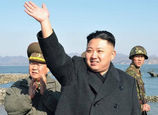
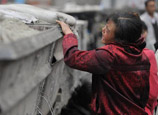
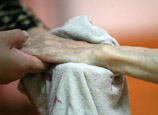
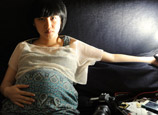
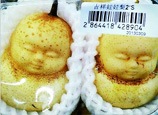









 How we face 'getting old before getting rich'
How we face 'getting old before getting rich'


![]()
